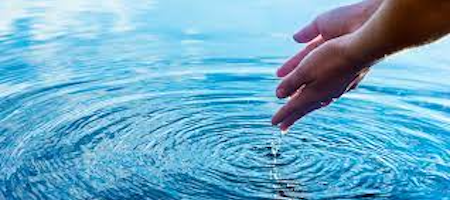di Gabi Siboni
In a recent publication, specialists and environmental groups gave an alarm on Italian water problem. The problems are complex and consist of leaking of old and unmaintained infrastructure together with the inefficient management of the water resource.
Reducing the water leakage can be achieved by two main activities. The first is the replacement of old piping. This is an essential long-term project and the government must allocate resources and develop a renovation plan. Replacing piping is a very long and expensive process and results will show many years from now. The second activity relies on a mote technological approach, i.e., the dynamic management of the water pressure in the main pipes. This methodology relies on the physical principal that water pressure in the pipes is proportional to the square of the leakage. For example, doubling the pressure will increase leakages by a factor of four. As water demand is not constant throughout the day, managing the water pressure in the pipes accordingly may reduce water leakage dramatically. Developing a dual plan to confront water leakage seems the best way ahead.
As regard to the management of the water resource in Italy, one of the best ways is the reuse of effluent waste for irrigation. This will release a large water quantity for domestic use. Water demand in Italy exceeds water availability, with groundwater being depleted predominantly for agricultural purposes. As such, there is a need for renewable fresh water. Wastewater in Italy, if treated and re-used, could generate much of Italy’s water demand.
Agricultural activity requires water supply for plant farming. Because the climatic characteristics of Italy, growing vegetation in the summer cannot exist without Irrigation and large investment in means of production make any crop unprofitable when not irrigated, either watered deficiently, in small amounts of water from the requirements of the plant, or with water of poor quality.
Irrigation is typically done using ground wells. The problem is that the amount uses of water needed for irrigation is much more than the natural recharge of the ground water table by precipitation. In which case the ground water table becomes lower, making pumping much more expensive in the use of energy, investments required and even worse, we abuse our ground water and reduce their quality as they get saltier.
The storage and transport of irrigation water depends on the optimization of crops, water quality needed. In parallel to dealing with the water leakage problem as described above, There are many initiatives in Italy regarding effluent water reuse. However, Italy must develop an effluent reuse strategy so that most of the treated wastewater are reused withing the next 20 years.
_______
La sfida dell'acqua in Italia
di Gabi Siboni
In una recente pubblicazione, specialisti e associazioni ambientaliste hanno lanciato l'allarme sul problema idrico italiano. I problemi sono complessi e consistono nella dispersione di acqua da infrastrutture vecchie e senza manutenzione insieme alla gestione inefficiente della risorsa idrica.
La riduzione delle perdite d'acqua può essere ottenuta mediante due attività principali. Il primo è la sostituzione delle vecchie tubazioni. Si tratta di un progetto essenziale a lungo termine e il governo deve stanziare risorse e sviluppare un piano di rinnovamento. La sostituzione delle tubazioni è un processo molto lungo e costoso e i risultati si vedranno tra molti anni. La seconda attività si basa su un approccio più tecnologico, ovvero la gestione dinamica della pressione dell'acqua nelle condotte principali. Questa metodologia si basa sul principio fisico che la pressione dell'acqua nei tubi è proporzionale al quadrato della perdita. Ad esempio, raddoppiando la pressione si aumentano le perdite di un fattore quattro. Poiché la richiesta di acqua non è costante durante il giorno, la gestione della pressione dell'acqua nei tubi, di conseguenza, può ridurre drasticamente le perdite d'acqua.
Lo sviluppo di un piano con due aspetti per affrontare le perdite d'acqua sembra il modo migliore per procedere.
Per quanto riguarda la gestione della risorsa idrica in Italia, uno dei modi migliori è il riutilizzo degli effluenti per l'irrigazione. Questo rilascerà una grande quantità di acqua per uso domestico. La domanda idrica in Italia supera la disponibilità idrica, con l'esaurimento delle acque sotterranee prevalentemente per scopi agricoli. Pertanto, vi è la necessità di acqua dolce rinnovabile. Le acque reflue in Italia, se trattate e riutilizzate, potrebbero generare gran parte del fabbisogno idrico italiano.
L'attività agricola richiede l'approvvigionamento idrico per la coltivazione delle piante. In considerazione delle caratteristiche climatiche dell'Italia, la crescita della vegetazione in estate non può esistere senza irrigazione e grandi investimenti in mezzi di produzione rendono qualsiasi coltura non redditizia se non irrigata, o irrigata in modo carente, in piccole quantità d'acqua rispetto al fabbisogno della pianta, o con acqua di scarsa qualità.
L'irrigazione viene generalmente eseguita utilizzando pozzi a terra. Il problema è che la quantità di acqua utilizzata per l'irrigazione è molto superiore alla ricarica naturale della falda freatica per precipitazione. In tal caso la falda freatica si abbassa, rendendo il pompaggio molto più costoso per l'uso di energia, per investimenti richiesti e, peggio ancora, abusiamo delle nostre acque sotterranee e ne riduciamo la qualità man mano che diventano più salate.
Lo stoccaggio e il trasporto dell'acqua di irrigazione dipende dall'ottimizzazione delle colture, dalla qualità dell'acqua necessaria. Parallelamente all'affrontare il problema delle perdite d'acqua, come sopra descritto, ci sono molte iniziative in Italia per quanto riguarda il riutilizzo delle acque reflue. Tuttavia, l'Italia deve sviluppare una strategia di riutilizzo degli effluenti in modo che la maggior parte delle acque reflue trattate venga riutilizzata entro i prossimi 20 anni.



